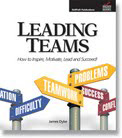One thing I have learned (and seen up close!) is that there is a fine line between confidence and arrogance! How do you avoid the odious sham of arrogance and in its place, develop actual, genuine CONFIDENCE—for yourself, and especially, for your team? This is a challenge that every leader and every team leader must address effectively, in order to develop and support high-performing employees.
This is why I was particularly drawn to a 2011 column in The Harvard Business Review written by Rosabeth Moss Kanter (reprint F110E) entitled, “Cultivate a Culture of Confidence.”
Rosabeth Moss Kanter is one of my favorite leadership thinkers and authors. She is the Ernest L. Arbuckle professor of business at Harvard Business School. She also serves as the director and chair of the Harvard University Advanced Leadership Initiative.
Her insights into effective leadership are particularly practical and helpful, and so I am pleased to share them and expand on them in this particular post.
Leaders are the Builders of Culture
I want to start with this assertion. The culture of any organization—large or small—is the result of what the leaders think, believe, do, and—sadly—often fail to do. Leaders create, sustain, and change (or destroy) culture by their example. It’s one of the reasons why I tell team leaders that they are much more powerful than they realize! They have the power to influence their team members—to change the way their people think, believe, and DO!
For Good…or for EEEEEVIL!???
I remind team leaders that their people are watching them very closely, and are being influenced by what they see—for better or for worse! In other words, leaders will always influence their people. Their only choice is the nature of that influence. Will it be a constructive example, or a counter-productive model that their team observes and emulates? It’s up to the leader to be a positive role model, and influence their team in the right direction!
So, what do leaders need to know (and do) with regard to building a confident team?
It’s All About Losing
YES! According to Kanter:
One difference between winners and losers is how they handle losing.
Kanter starts with the assumption that losing is inevitable!
Even for the best companies and most-accomplished professionals, long track records of success are punctuated by slips, slides, and mini-turnarounds.
Then she concludes:
That’s why the ability to recover quickly and get back on course is so important. …A key factor in high achievement is bouncing back from the low points.
Mishandling Losing Creates a Culture of Losing…and MORE Losing!
Kanter then warns of the temptations of mishandling losing—what she calls the “pathologies of losing,”—and how these counterproductive responses can make it difficult to recover from losing and, in fact, even make the situation worse!
Behaviors like the following:
- Panicking
- Jettisoning your game plan prematurely
- Focusing on self-protection
- Leaving your team to look out for themselves
- Shifting blame
- Hiding the facts or cooking the numbers
- Keeping your head down, hoping things get better before anyone notices!
- Denying that there is a problem… or
- …that there is anything that could have been done differently or better… or…
- …that there is anything that can be learned or changed as a result
[BY THE WAY… In my leadership and management training seminars, I often pause at points like this and take an informal survey of my students, usually with a simple question like, “How many of you have seen behaviors like this in organizations or situations you have observed?” Sadly, almost every hand in the room gets raised in response!]
I tell my management students (and executive coaching clients):
If you can’t be open, honest, and transparent about your failures, you will absolutely destroy your credibility as a leader.
A High Performance Culture Helps Leaders Deal Constructively With Losing
Kanter then identifies the behaviors and activities of a high performance culture that enables leaders and teams to address losing constructively, and sustain consistent resilience as a result.
These resilient leaders…
- Rehearse through diligent practice and preparation.
- Embrace the facts of the situation.
- Review what went right or wrong in each scenario…so they can…
- …build up the team’s strengths and identify areas of weakness.
- …become constant learners, through both winning and losing.
- Encourage personal responsibility for actions.
- Constantly seek creative ideas for improvement and innovation through widespread dialogue and “brainstorming.”
- Stress collaboration and teamwork—common goals; commitment to a shared vision; mutual respect and support for one another; co-mentoring between team members; and shared responsibility for team success.
- Make sure that team members receive recognition and credit for their contribution to the team’s success, learning, and growth.
Kanter reminds us that true resilience is only sustainable when surrounded and supported by a culture…a system…that feeds it and reinforces it. She puts it this way:
Teams that are immersed in a culture of accountability, collaboration, and initiative are more likely to believe that they can weather any storm.
She maintains that these are the three important “cornerstones” that create a culture of confidence—
- Accountability
- Collaboration
- Initiative
Further, she makes the case that a healthy culture of confidence is pervasive! It results in:
- Individual self-confidence
- Confidence in fellow team members
- Confidence in the organization
This is what equips a team to perform under pressure—and stay calm, learn, adapt, and keep on going!
If you want to build a confident team like that, let us know—we can help! Our experience, resources, and insight can help you create the kind of high performing team culture that Kanter recommends. Give us a call! In the meantime, stay tuned! There are more great ideas coming in the future!
Until next time… Yours for better leaders and better organizations,
Dr. Jim Dyke – “The Boss Doctor” ™ helping you to BE a better boss and to HAVE a better boss!






